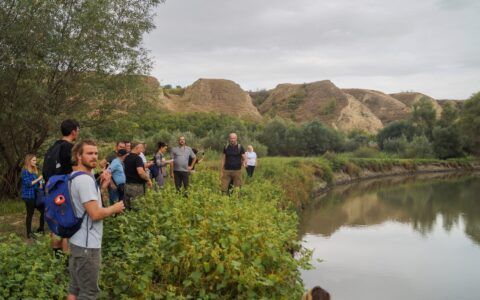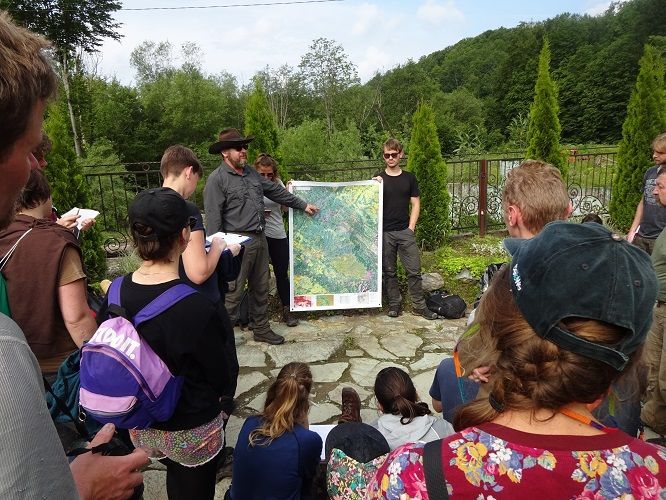Eastern Europe in the VUCA World (2020):
Transboundary Learning in UNESCO Biosphere Regions for Sustainable Development under Global Change and Increasing Uncertainty
Our world seems to be less predictable than it used to be. Increasing Volatility, Uncertainty, Complexity and Ambiguity (VUCA conditions) endanger the implementation of sustainable development. The VUCA concept was first introduced by the US military after the end of the Cold War to describe the conditions of a world that is increasingly difficult to predict and reliable. Since its first appearance in the 1990s, the concept has quickly been adopted by other areas such as strategic decisions, risk management and situational problem solving. We, here, apply it to the context of sustainable development in Eastern Europe.
Because of climate change effects and unsustainable landuse the world is facing tree dieback and other threats that influence the resistence and resilience of forests. Very recently, several thousand hectares of forest have been burning in Ukraine (area around Chernobyl).
The cooperation of international partners is a key condition for studying the occurring changes that impact the ecosystems and sharing knowledge on potential strategies. The project aims at strengthening the cross-border cooperation in research on climate-adaptation measures in forests, with a focus on UNESCO Biosphere Reserves as living laboratories for sustainable development. The project focuses on the border region of three countries: Ukraine, the Republic of Moldova and Romania. The project partners are from academia as well as from the administration of UNESCO Biosphere Reserves that have direct influence of the management on the project region.
A special advantage of the regional project partners is that they have already worked together in predecessor projects and can therefore build on a stable basis of cooperation.
Originally planned Project Measures and adapted Measures due to COVID-19 Situation:
Originally, we planned for an international study trip in Ukraine in May 2020 and a joint seminar in Moldova in autumn as well as research and study visits. Due to the new circumstances of the COVID-19 pandemic, the project is adapting its measures suited to the current situation.
Instead of the study trip to Ukraine, it is planned to create a virtual road trip through Central and Eastern Europe, and have a week of web-based exchange with all the involved project partners. The virtual excursion includes video messages, films, presentations and webinars about the countries, their people, UNESCO biosphere reserves, and beech forests.
Updates as of 08.2023
How the project dealt with COVID you can see here and here.
How the follow-up project dealt with the full-scale war you can see here.
How the project is dealing with the ongoing struggle you can see here.
Currently the coordination team is preparing the application for the next follow-up project.

Excursion in the newly established UNESCO biosphere reserve “Lower Prut” during the 2019 seminar in Moldova, © N. Motspan

Vasyl Pokynchereda and Iryna Yonash discussing forest ecosystem management in the Carpathian Biosphere Reserve with the students group during the 2019 study trip, Ukraine, © A. Dichte

Pierre Ibisch discussing transboundary cooperation efforts in the Carpathian region with students during the 2019 study trip, Ukraine, © J. Blumröder
Lead: Centre for Econics and Ecosystem Management
Responsible Contact Person:
Angela Dichte
angela.dichte@hnee.de
Partners:
Ukrainian National Forestry University Lviv (Ukraine)
Carpathian Biosphere Reserve (Ukraine)
National Institute for Research and Development in Forestry “Marin Drăcea” (ICAS) Suceava (Romania)
State University of Moldova Chisinau (Republic of Moldova)
Stefan cel Mare University Suceava (Romania)
City of Angermünde Germany
Project Duration: 2020
Financed: Germany Academic Exchange Service (DAAD)


